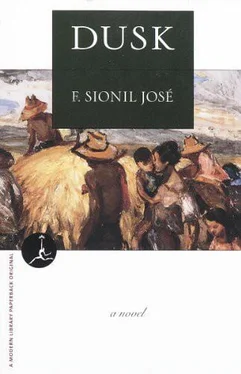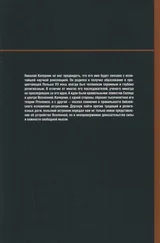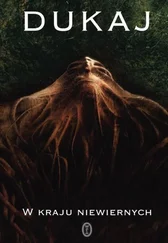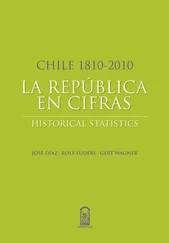“Yes, Apo,” Istak said. “I was with them. Perhaps they still have no guns, so they cannot fight those who are armed. But they know their land — they rain stones from the mountaintops, they ambush those who are not wary or who cross their territory without their permission.”
“They were a splendid sight in Malolos when the republic was inaugurated,” the Cripple said quietly. “They paraded in their loincloths, armed with axes and spears. Like the Moros in the south, they are our brothers. We must recognize their belonging to Filipinas, their willingness to fight for her.”
He turned to Don Jacinto briefly, then to Istak. “Some months ago when the war already seemed lost — yes, Eustaquio, we always prepared for the worst — Bishop Aglipay and General Luna went north to look for our last redoubt. Now I am going to ask you, Eustaquio, to do a favor not only for Don Jacinto and for me — but for yourself, your family, though you may not think of it this way. In time, I know you will. It is a very dangerous job, and you must do it with great caution and secrecy. You will surely go through territory already occupied by the Americans and if you are caught, you will most probably be tortured before you are shot. Remember, the enemy has spies who are brown like us, the opportunist Chinese and mestizos in Manila whom the Americans have enlisted to work for them, and those bastard Macabebes.”
“Please don’t tell me what you don’t have to, Apo,” Istak said. “Just tell me what the job is, if I can do it.”
“You can,” Don Jacinto said, smiling benignly. “We have been discussing this since yesterday. You are the man to do it.”
“You know the land of the Bagos. The Ilokos is your own country,” the Cripple said. “You speak excellent Spanish, and even Latin, and it is just as well, for the people you are going to meet cannot speak your language, nor you theirs.”
Istak sat still, taking in every word. He recalled now how they had talked about the many languages in Filipinas, how necessary it was to have but one with which the people could reach one another. For the time being, it would have to be Spanish, but in the future, it would be a language wholly theirs, expressive of their souls and rooted in their lives.
The Cripple continued: “You will not attract attention — this is one reason why we have chosen you. Forgive me, Eustaquio — but you don’t look like a soldier or the ilustrado that you are. You are a farmer … the way I was.”
How well he had put it! The praise burned in Istak’s face. An ilustrado —so that was what he had become.
“The most important thing, Eustaquio,” the Cripple emphasized, “is not that we are not farmers anymore, but that we should never, never forget that we were.” He paused and looked at his old friend. Don Jacinto nodded.
The Cripple now told him what he was to do:
“Ride to Bayambang — that is where they will be tomorrow. They are moving very fast at night, with the Americans pursuing them. I should not tell you, but this knowledge should never leave you, not even if they torture you, that the president is headed for the Ilokos. He will cross the mountains into Cagayan. This is as much as I know and I cannot tell you more although I wish I could. There is no other way, Eustaquio. The Americans have landed in San Fabián and their cavalry has advanced already to San Jose, to the towns near here, San Quintín and Umingan. The escape route is sealed.”
“You don’t have to tell me everything, Apo,” Istak said, wondering when the Americans would backtrack to Rosales itself.
“I trust you,” the Cripple exclaimed. “If only we could learn to trust one another — Tagalogs trusting Ilokanos, Pampangos trusting Tagalogs. An Ilokano showed the way — more than a hundred years ago, Diego Silang trusted his neighbors. The people of Pangasinan became his allies. His rebellion was defeated, yes — but it was a beginning, the cooperation among the peoples of the north. More of this and, Eustaquio, we have a nation! Not this, not this …” The Cripple sighed and shook his head. From a folder on his desk, he withdrew a sheaf of papers. He picked out a few and began to read. “The defeat of the insurgents is inevitable; not only are they disunited and disorganized — they are also hated by the natives …” He paused, looked at Don Jacinto and Istak and asked: “Does it not sound familiar? It is this chauvinist Thomas Collins again, and his report tells of how bands and cheering crowds have welcomed them in the towns they have entered. Yes, this could all be true, maybe it is also true that there are many Filipinos who do not like war and want peace at any cost. But this … this!” The Cripple’s lips were compressed and anger flashed in his eyes. He returned to the paper he was reading and quietly continued: “Our forces are assisted by Macabebes — native scouts from Pampanga — who know the terrain and are familiar with insurgent methods. Like our Indian scouts in the Indian campaign, they are absolutely loyal to us …” The Cripple stopped, his head dropped, silence.
“There is truth in what this Collins says,” he finally said in a small, defeated voice. “How can we build trust among our own people? How can we make them confident of themselves and their countrymen so that they will not sell their souls for a few silver dollars? We need more leaders like Diego Silang.” He raised his thin arms in a gesture of futility, then dropped them on the table. “There is so much that the past can teach us,” he continued softly, as if he were talking more to himself than to anyone else. “Diego Silang — more than a hundred years ago, what did he prove? That with a brilliant and selfless leader, we can be united the way he united the north. And united, we can then make Filipinas strong, formidable …
“We have no time for remonstrances, fault-finding, self-scrutiny. We must only think of how we can survive. No, not us, but the republic. The president must not be captured.”
“They must flee quickly,” Don Jacinto said. “And to escape their pursuers, they need a very good guide, someone who knows those mountains. I have not forgotten what you have told me, Eustaquio.”
The Cripple opened the drawer on his desk and brought out a small brown envelope. “You must give this letter to the president, Eustaquio,” he said quickly. “If it is lost or if you have to destroy it, remember that this is what I have written in this letter, and you must repeat this to no one but him. No one, remember that. I believe that the war is lost, but not the struggle. The mistakes that were committed, we learn from them. We cannot fight an enemy as powerful as America in the manner with which they are slaughtering our men — with cavalry and cannon. We will fight them — I am simply reiterating this — in a guerrilla war everywhere. A long, costly war, not set battles and frontal attacks. They are well trained, well supplied. We should never stop and I–I will continue what I am doing — trying to reach the councils of the world, speaking of our rights. I will wage this campaign in their own newspapers, in the chambers of their own government. I will do this with the pen. Whatever we do, in whatever battlefield we fight, we must be united. The president is a just man. Tell him what I have told you — that this is not a Tagalog war, but a war involving all of us.”
One last question was burning in Istak’s mind; the Cripple, the president, all of them — surely they must know that the revolution had failed. And it had failed because the leaders could not see themselves as Filipinos. Always, they were men of Cavitc, of Bulacan, and now, he was Ilokano. How could anyone rise from his origins? Everything starts from there just as with him everything started in Po-on. But he asked it anyhow:
Читать дальше












